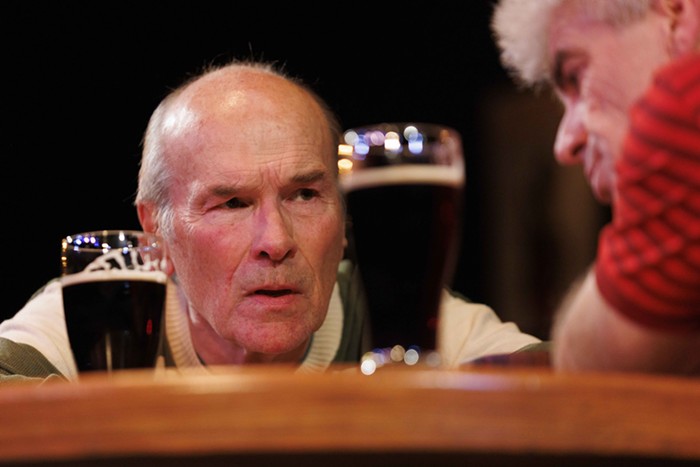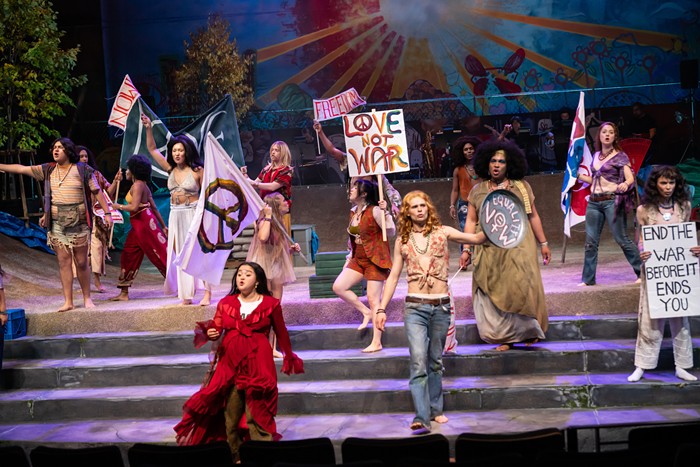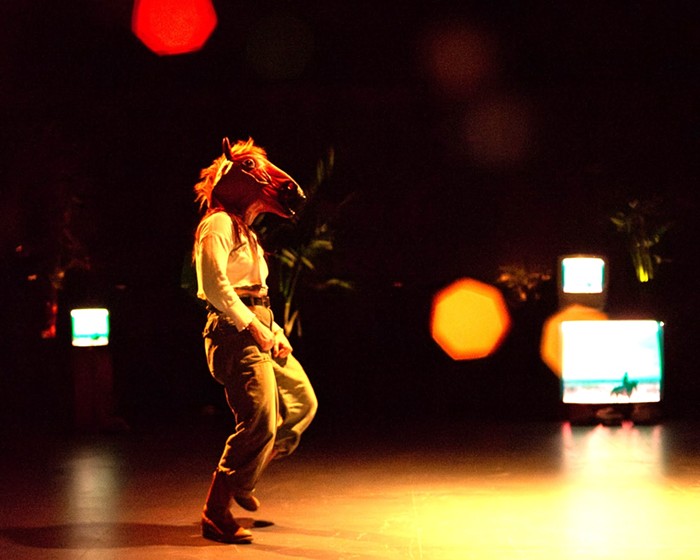THE HILLSBORO STORY is many things: a research project, a personal obsession, a look at the parallel tracks of white and black history in one small town. Susan Banyas, the show's narrator (she wrote, directed, and stars as herself), is a white woman; as a child, her hometown of Hillsboro, Ohio, was at the center of a pitched battle to define the terms of the Supreme Court's decision on Brown v. Board of Education, which mandated the nation-wide desegregation of public schools.
In Hillsboro, black students attended a rickety, rundown school that was built in the 1800s. After Brown, the school board promised desegregation... eventually. Things were so bad that a white city engineer tried to burn the school down, frustrated by the district's refusal to desegregate; the district simply fixed it up again. As Banyas sat in the classroom at her all-white school, listening placidly to her teacher read Charlotte's Web, black children marched outside with their mothers, demanding entrance.
The fight to desegregate the Hillsboro schools involved a number of figures—African American mothers standing up to their government on behalf of their kids; the aforementioned white engineer, who was forced to plead insanity for his actions; a school board that knowingly gerrymandered its districts. The Hillsboro Story's four cast members hopscotch between roles, narrating their story and making do with simple props in a way that evokes nothing more than a classroom skit. With this seemingly casual storytelling technique, personal stories and historical events are subtly woven together, offering an impressively broad scope.
Artist Rep's lo-fi production is confidently rooted in the strength of its story and the skills of its four-woman cast. Banyas revists her own history with good-humored self-consciousness, talking the audience through scenes from racist southern Ohio; she is outstandingly supported most notably by LaVerne Green, who gives a deceptively understated performance.
The show makes no effort to connect its subject matter to contemporary events, but most audience members will likely find themselves making that leap on their own—after all, discrimination is still alive, well, and institutionalized. For me, the show resonated with contemporary struggles to legalize gay marriage, as well as offering a concrete example of what it really means to speak truth to power.



















